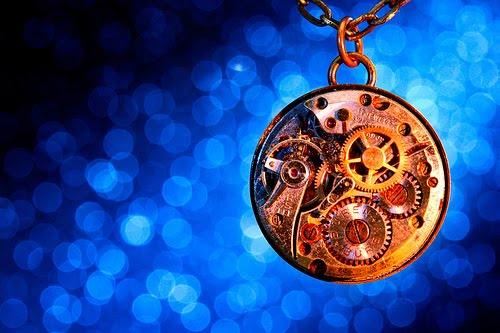I'm reading Ben Bova's excellent book, "The Craft of Writing Science Fiction That Sells."
I knew I wanted to read it as soon as I saw the quotation Bova used to start off his book:
"All good books are alike in that they are truer than if they had really happened and after you are finished reading one you will feel that all that happened to you and afterwards it all belongs to you: the good and the bad, the ecstasy, the remorse and sorrow, the people and the places and how the weather was. If you can get so that you can give that to people, then you are a writer."
-- Ernest Hemingway
Yes. That.
Hemingway was talking about stories in general. What is science fiction? What makes one book a work of science fiction and another not?
The science must be essential to the story.
Bova defines science fiction this way:
"Science fiction stories are those in which some aspect of future science or high technology is so integral to the story that, if you take away the science or technology, the story collapses."
He uses Mary Shelly's book "Frankenstein" as an example. It passes the test because "Take the scientific element out of Mary Wollstonecraft Shelley’s novel and what is left? A failed medical student and not much more."
What is unique to science fiction?
Science fiction has special requirements, special demands. Bova writes:
"Every good science fiction story must present to the reader a world that no one has ever seen before. You cannot take it for granted that the sky is blue, that chairs have legs, or that what goes up must come down. In a good science fiction story the writer is presenting a new world in a fresh universe. In addition to all the other things that a good story must accomplish, a good science fiction tale must present the ground rules and use them consistently without stopping the flow of the narrative."
Ben Bova's Tips For Bringing A Character--And A Story--To Life
Make the protagonist interesting.
He (or she) doesn't have to be likeable, but it's difficult to make a character likeable if he (or she) isn't interesting.
Make the stakes both clear and dramatic.
Make sure the problem the protagonist encounters is truly dire. If the protagonist doesn't solve the problem then his life should be dramatically affected for the worse.
For example, if Luke Skywalker (Star Wars IV) didn't destroy the Death Star then he'd be dead, all his friends would be dead, and the resistance would be destroyed.
Give the protagonist one or two great strengths and one obvious weakness.
For example, take the character of Ender from Orson Scott Card's Ender's Game. Ender had both compassion and ruthlessness. Which trait was either a strength or a weakness depended on the context. Ender's challenge--one of them--was to strike a balance between the two.
I know this isn't science fiction, but I like using the character of Indiana Jones as an example. Indy was resourceful, that was his great strength. Also, he was fearless. His weakness was that he was too trusting, especially of attractive females. Another of his weaknesses, played for comic effect, was his fear of snakes.
Give the protagonist a problem that preys upon their weakness.
Bova writes:
"Once you have decided who your protagonist will be and you know his strengths and weaknesses, hit him where it hurts most! Develop an instinct for the jugular. Give your main character a problem that she cannot solve, and then make it as difficult as possible for her to struggle out of her dilemma."
Emotion A vs emotion B
Your protagonist should have an inward struggle. They should have two opposing goals. Bova uses Hamlet as an example. Hamlet struggled between the desire for revenge upon his uncle, Claudius, and the desire to do no wrong. He writes:
"I want to borrow a marvelous technique from William Foster-Harris, who was a fine teacher of writing at the University of Oklahoma. He hit upon the technique of visualizing story characters’ problems in the form of a simple equation: Emotion A vs. Emotion B. For example, you might depict Hamlet as a case of revenge vs. self-doubt. Think of the characters you have loved best in the stories you have read. Each of them was torn by conflicting emotions, from the Biblical patriarch Abraham’s obedience vs. love, when commanded by God to sacrifice his son Isaac, to the greed vs. loyalty often displayed by my own quixotic character, Sam Gunn.
"Whenever you start to think about a character for a story, even a secondary character, try to sum up his or her essential characteristics in this simple formula. Don’t let the simplicity of this approach fool you. If you can’t capture a character by a straightforward emotion vs. emotion equation, then you haven’t thought out the character well enough to begin writing. Of course, for minor characters this isn’t necessary. But it certainly is vital for the protagonist, and it can be just as important for the secondary characters, too.
"With this approach, you begin to understand that the protagonist’s real problem is inside her head. The basic conflict of the story, the mainspring that drives it onward, is an emotional conflict inside the mind of the protagonist. The other conflicts in the story stem from this source [...]."
Ben Bova won the Hugo six times, wrote and published over 120 stories, was an editor over at Analog and was the editorial director at Omni.
I'll close with how Ben Bova defined a story:
"[...] every story is essentially the description of a character struggling to solve a problem."
So simple, so true, yet it is far from easy to create (or discover) stories that embody that principle.
Good writing!



